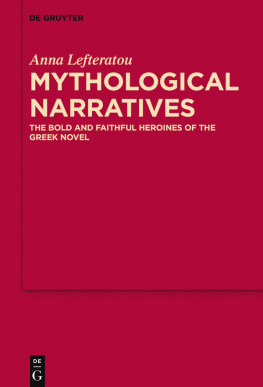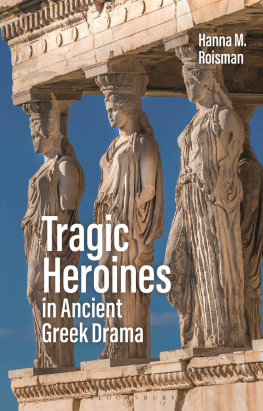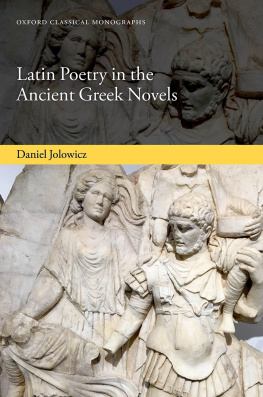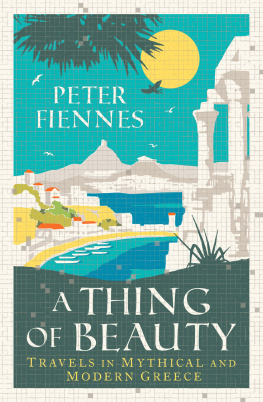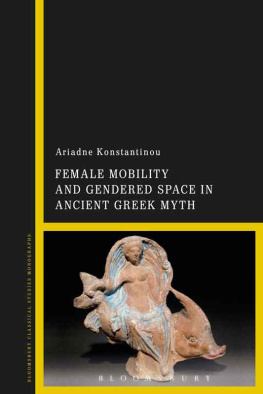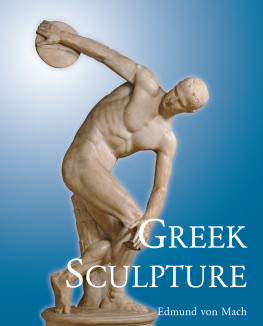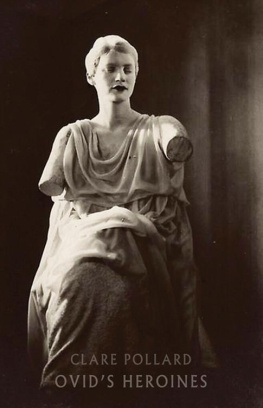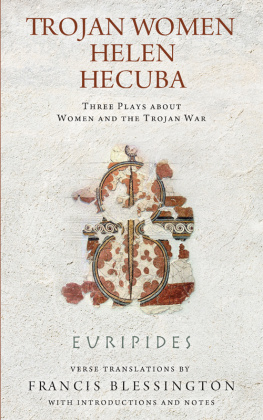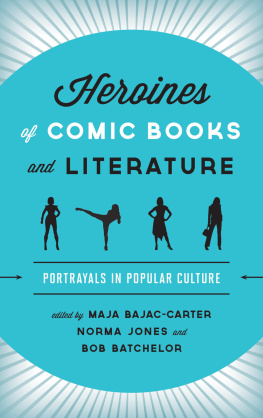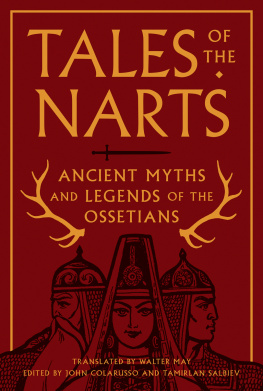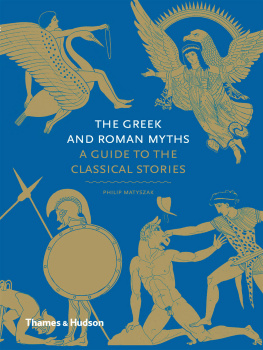Contents
Guide

Anna Lefteratou
Mythological Narratives
MythosEikonPoiesis

Herausgegeben von
Anton Bierl
Wissenschaftlicher Beirat:
Gregory Nagy, Richard Martin
Band 8
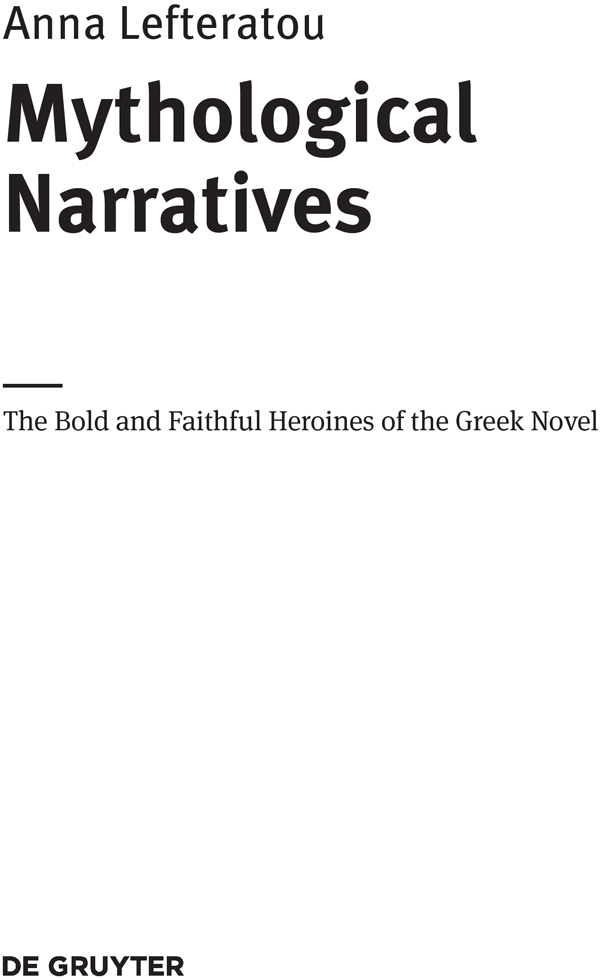
ISBN 978-3-11-052732-2
e-ISBN (PDF) 978-3-11-052869-5
e-ISBN (EPUB) 978-3-11-052751-3
ISSN 1868-5080
Library of Congress Cataloging-in-Publication Data
A CIP catalog record for this book has been applied for at the Library of Congress.
Bibliographic information published by the Deutsche Nationalbibliothek
The Deutsche Nationalbibliothek lists this publication in the Deutsche Nationalbibliografie; detailed bibliographic data are available in the Internet at http://dnb.dnb.de.
2018 Walter de Gruyter GmbH, Berlin/Boston
www.degruyter.com

,
Preface and Acknowledgements
This book originates from a revised doctoral thesis written at University of Oxford and funded by the generosity of the Loverdos Foundation and the Academy of Athens. The dissertation was defended at Corpus Christi College in August 2010. The most inspiring, long-term, resilient, and patient reader of this book has been Ewen Bowie, who has my eternal gratitude and admiration. I am equally grateful to Tim Whitmarsh who has read through different drafts of the dissertation and the book manuscript and offered insightful and provoking feedback. The initiator of the theme of this monograph is Alain Billault, the supervisor of my DEA thesis on Heliodorus, to whom I am deeply grateful for the French aspect of mythe . Equally important for this project has been the support of Silvia Montiglio, who read different drafts of my recognition chapters, and whose encouragement has meant a lot to me. I also owe much to the editor of the MythosEikonPoiesis Series , Anton Bierl, who has been extremely supportive and receptive of the notion of myth suggested in this book.
I would also like to extend my thanks to the anonymous reviewers of this book and the audiences in Lisbon and Oxford and to those colleagues and friends, who have been behind this book in multiple ways: Nora Charitou, Despoina Evangelakou, Jonas Grethlein, Fotini Hadjittofi, Stephen Harrison, Owen Hodkinson, Elena Iakovou, Larry Kim, Nick Lowe, Despoina Magka, Heinz-Gnther Nesselrath, Stelios Panayotakis, Tanya Pollard, Magda Rachioti, Gabriela Ryser, Leyla Seyfullah, Estelle Strazdins, Aldo Tagliabue, Ilinca Tanaseanu-Dbler, and Thanasis Vergados. I also want to thank Mary-Beth Robinson for proofreading the manuscript and improving my English - needless to say that whatever negligence remains is mine alone. I am also thankful to Katharina Legutke the Project Editor at De Gruyter for her support and patience. Particular thanks goes also to my lifelong teacher Vronique Perl. Last but not least at all, I want to thank Oleg for his patience and my children, Marilena and Nikolas, for sparing me from many sleepless nights the last year by sleeping through.
Throughout this book I have used the following editions: for Chariton, Reardon (2004b); for Xenophon of Ephesus, OSullivan (2005); for Achilles Tatius, Garnaud (1991); for Longus, Morgan (2004); for Heliodorus, Rattenbury, Lumb, and Maillon (2003 [1935]); for the fragmentary novels, Stephens and Winkler (1995). I have adopted the Latinate spelling of Greek names and modified translations and citations accordingly. For Charitons, Xenophons, Achilles Tatius, and Heliodorus novels I have used the translations from Reardon (2008 [1989]), slightly adapted; for Longus novel I have used Morgan (2004). Translations of other texts, unless otherwise stated, are mine. In the analysis I cite both the English and the Latin names of Authors and Works; in the footnotes and in the Index I use the abbreviations of LSJ . Discussion of folktale material is facilitated by reference to Aarne-Thompson (AT) Tale Types, The types of the Folktale , 1910, translated and enlarged by Stith Thompson, 1961 and expanded by Hans-Jrg Uther as The Types of International Folktales , 2004.
This book is dedicated to my father, Spyros Lefteratos, the first reader of my first sci-fi novels, when at the elementary school, and the one who bought me, as soon as I could read, the complete Childrens Greek Mythology the best birthday-present ever!
Anna Lefteratou,
(CRC EDRIS, University of Gttingen-Heidelberg University)
Introduction
La signification, est tout entire dans la relation dynamique qui fonde simultanment plusieurs mythes ou parties dun mme mythe, et sous leffet de laquelle ces mythes, et ces parties, sont promus lexistence rationnelle, et saccomplissent ensemble comme les paires opposables dun mme groupe de transformations.
(Claude Lvi-Strauss, Le cru et le cuit, 23 .)
Womens Tales
In one of the first paragraphs of Achilles Tatius Leucippe and Clitophon , the reader encounters one of the most extensive and illuminating lists of mythical exempla in the five complete surviving Greek novels. The conversation evolves around one of mens favourite topics: women, beautiful women. The protagonist, Clitophon, is talking about Eros with his friends Clinias and Charicles, when, in an attempt to dissuade his lover, Charicles, from marrying, Clinias bewails the calamities that await a man who desires a woman. Clinias line of argument is based not on his own experience or that of another person, but to the great amazement of the modern reader, although probably not of the ancient on mythology:
1.8.37: Pity the prospective groom, it looks as if theyre sending him off to war. If you were uninstructed in the examples of poetry (), you would not know of the plays ( ) involving women, but as it is you could tell others how many mythic tales women have contributed to the stage ( ): Eriphyles necklace, Philomelas banquet, Stheneboeas slander, Aeropes theft, Procnes slaughter. Agamemnon desires the beautiful Chryseis, and it brings a plague on the Greeks. Achilles desires the beautiful Briseis and introduces himself to sorrow. If Candaules wife is fair, yet this same wife kills Candaules. The fiery torch, lit for Helens marriage, lit another fire hurled against Troy. The wedding of the chaste Penelope was the death of how many suitors? Phaedra loved Hippolytus and killed him; Clytemnestra hated Agamemnon and killed him. Oh women, women, they stop at nothing! They kill when they love, they kill when they dont love ... and so much one could say about the beautiful ones, for beauty does offer some consolation in the midst of calamity, a stroke of luck in a losing streak. But if, as you say, she is not even pretty, it is a catastrophe redoubled.
Clinias enumeration is a compilation of tales about sex and blood, about those bold and beautiful women of Greek myth, who were famous for the disastrous results of their love afairs. Having recently, and for the first time, been in love at first sight with the exceptionally beautiful Leucippe, Clitophon listens reluctantly to his cousins mythical catalogue, for Clitophon takes a very different view on erotic matters. Later, during what might nowadays be called a candlelight dinner, and despite the presence of the whole family at the table, Clitophon and Leucippe listen to a song that creates a romantic atmosphere:

